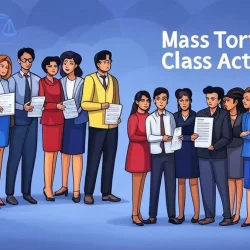What Laws Do the Police Have to Obey?
It is a common misconception among the public who do not possess a full understanding of the law that police officers can operate outside the legal system in their daily practice. This could not be further from the truth, as all American police officers must obey and abide by the rules of law set out in the constitution. In addition, their conduct and how they put into practice their policing activities are heavily scrutinized and monitored. For example, in the United Kingdom, police officers who are suspected of not acting legally when serving the public can be investigated by the Police Complaints Commission. In this article, it is recognized that serving police officers must uphold the law in their daily duties. Three key situations are explored in detail with information on the conduct and actions that are legally expected by law enforcement professionals.
Reading the Miranda Rights
The Miranda Rights are read out to people who are being arrested by the police so that they may be taken to a police station for further questioning, information gathering, and interrogation. The Miranda Rights commonly consist of the following statement being read out by the police officer: “You have the right to remain silent. Anything you say can and will be used against you in a court of law. You have a right to an attorney. If you cannot afford an attorney, one will be appointed for you.” These rights only come into effect after the arrest has been formally made. A police officer can ask the suspect questions before reading them their rights, but these take place voluntarily and the person is free to leave until the point of being arrested. It is important to realize that at a certain point during an investigation, the police officer is required to read the Miranda Rights. If they do not do it at a suitable point, the information that they gather without this right being issued may mean that any evidence in court becomes inadmissible. In some circumstances, this can directly affect the outcome of a trial.
When Entering a Private Property
In most cases, the police force must have a warrant issued to legally come into a person's home without their expressed prior permission. Warrants are typically issued when there is suitable evidence held by the police to arrest and subsequently prosecute an individual. In recent years in America, there has been an increase in the use of “no knock” warrants being issued, which allow police to enter a person's home with forced entry and without warning. However, in these circumstances, there must be a reasonable assumption that the individual poses a high risk to police officers, may destroy vital evidence if alerted to a police presence, or may try to escape justice. However, “no knock” warrants are controversial and can lead to civil action being taken against the police if there are no proven grounds for this warrant. Today, you can find attorneys for no knock warrant incidents if you believe that your premises have been entered in such a manner without reason. Legal action can then take place, and if the police are found to be at fault, compensation may be payable to the individual.
On the Road
As a final example, it is important to understand that police officers cannot drive at any speed they wish whilst on routine patrol duties. As with any other citizen, they must obey the relevant road traffic laws that are applicable in their country. The only exceptions to these are when the police officer is responding to an emergency call or in pursuit of a suspected criminal. Even in these circumstances, they must drive with due care and attention, even if they are not subject to the usual speed limits for each road.
More to Read:
Previous Posts:


